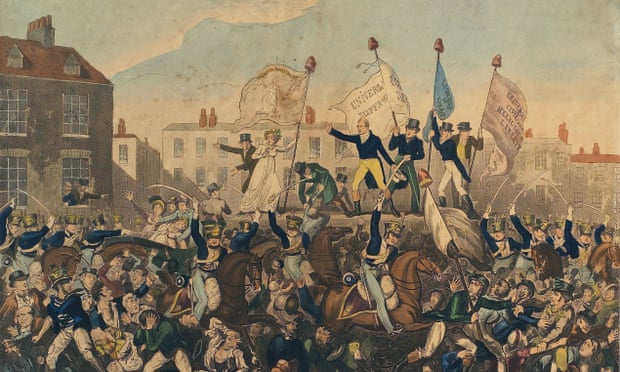Yesterday we celebrated one great newspaper anniversary, today comes another – for it’s 200 years since a group of liberal Manchester businessmen got together to bring us The Guardian.
The paper’s origins lie with a small religious sect, during a period when, as Robert Tombs put it, English politics was “a branch of theology rather as twenty-first-century politics is a branch of economics”. On the one hand were the Whigs, with the support of low church Protestants, including nonconformists, and on the other the high church Anglican Tories. Britain’s political divisions — indeed even our political geography — dates from this original culture war within Protestantism.
The Tories would become the Conservatives, while the nonconformist tradition would form the backbone of the British Left, bequeathing it “campaigning militancy, a self-image of anti-Establishment rebellion, a view of politics as moral struggle (as opposed to ‘the art of the possible’)… and sectarian suspicion of the motives of opponents.”
Among the most influential of these Protestant sects was perhaps the most radical of all, the Unitarians, a group so controversial (by Protestant standards) that that they did not even believe in the Trinity.
Originally persecuted for their theological proximity to Judaism, Unitarians would become the most enthusiastic Christian Zionists in the 19th century, agitating for a Jewish homeland before it was fashionable (no one would accuse the paper of being vehemently Zionist today). They also “formed the intellectual core of religious and political radicalism,” according to Tombs, having a lasting influence even after the churches had emptied.
Like the Quakers, the Unitarians tended to have liberal social views, and many sympathised with the French revolution; Joseph Priestley, who discovered oxygen, had his Birmingham laboratory burned down by a “king and country” (ie Right-wing) mob.
Also like the Quakers, they were good at making money, largely because they prized literacy, and in particular promoted knowledge societies where people discussed ideas. Joseph Henrich looked at data from 18th and 19th century Britain and found that “regions infused with Unitarian congregations were nearly four times more likely to develop a knowledge society than were other regions.”
But it wasn’t until the end of the Napoleonic War, aggravated by a volcanic eruption, that the Unitarians began to organise politically. By the end of 1816, there were mass petitions calling for cheaper food, the centre of agitation being in Manchester. Increasing numbers of mass meetings were arranged until a “great assembly” was organised in 1819 in the city’s St Peter’s Field’s – which ended with the infamous Peterloo massacre.
Although the idiotic Prince Regent congratulated the magistrate responsible, Peterloo provoked outrage, especially after the authorities arrested The Times correspondent, John Tyas. (My great-great-great-grandfather. Yes, Gregory Clark was really onto something.)
Instead the Times published an account by a local journalist, John Edward Taylor, a Unitarian who was part of a network of liberal nonconformists in the city. This group, “the Little Circle”, were agitated by a number of issues, including not just poverty but voting reform. Manchester, with over 100,000 people, had no MPs at the time while the rotten borough of Old Sarum — population: seven — had its own representative. These whinging Lefties for some reason thought this was unfair and, on 5 May, 1821, a new paper came out to reflect their agenda — The Manchester Guardian.
Anyway, happy birthday to a great British institution!











Join the discussion
Join like minded readers that support our journalism by becoming a paid subscriber
To join the discussion in the comments, become a paid subscriber.
Join like minded readers that support our journalism, read unlimited articles and enjoy other subscriber-only benefits.
Subscribe